
Marseille: The Enchanting Gateway to Provence
Marseille is a vibrant port city on the Mediterranean coast, known for its rich history and cultural diversity. As the oldest city in France, it boasts a unique blend of ancient landmarks and modern attractions. From its bustling harbor to the charming old town, Marseille offers an array of experiences for every type of traveler. Begin your journey at the Old Port (Vieux-Port), where the scent of fresh seafood mingles with the salty sea air. Here, you can watch fishermen sell their catch of the day or take a relaxing boat trip to the nearby Calanques, a series of breathtaking limestone cliffs and azure waters. The historic Le Panier district, with its narrow streets and colorful buildings, invites you to explore its artisan shops and cozy cafes. Marseille is also home to several impressive landmarks. The Basilique Notre-Dame de la Garde, perched high above the city, provides panoramic views of the surrounding area. The MuCEM (Museum of European and Mediterranean Civilizations) offers a deep dive into the region's cultural heritage. Don't miss the lively markets, such as the Marché de Noailles, where you can sample local delicacies and immerse yourself in the city's vibrant atmosphere. Whether you're a history buff, a foodie, or an outdoor enthusiast, Marseille has something to offer. Its blend of tradition and modernity, along with its stunning coastal scenery, makes it a must-visit destination on any trip to France.
Local tips in Marseille
- Visit the Old Port early in the morning to see the fish market in full swing.
- Take a boat trip to the Calanques National Park for stunning natural scenery.
- Wear comfortable shoes for exploring the hilly streets of Le Panier.
- Try the local specialty, bouillabaisse, at a traditional Marseille restaurant.
- Use public transport or rent a bike to navigate the city easily.
Neighbourhoods in Marseille
Marseille: The Enchanting Gateway to Provence
Marseille is a vibrant port city on the Mediterranean coast, known for its rich history and cultural diversity. As the oldest city in France, it boasts a unique blend of ancient landmarks and modern attractions. From its bustling harbor to the charming old town, Marseille offers an array of experiences for every type of traveler. Begin your journey at the Old Port (Vieux-Port), where the scent of fresh seafood mingles with the salty sea air. Here, you can watch fishermen sell their catch of the day or take a relaxing boat trip to the nearby Calanques, a series of breathtaking limestone cliffs and azure waters. The historic Le Panier district, with its narrow streets and colorful buildings, invites you to explore its artisan shops and cozy cafes. Marseille is also home to several impressive landmarks. The Basilique Notre-Dame de la Garde, perched high above the city, provides panoramic views of the surrounding area. The MuCEM (Museum of European and Mediterranean Civilizations) offers a deep dive into the region's cultural heritage. Don't miss the lively markets, such as the Marché de Noailles, where you can sample local delicacies and immerse yourself in the city's vibrant atmosphere. Whether you're a history buff, a foodie, or an outdoor enthusiast, Marseille has something to offer. Its blend of tradition and modernity, along with its stunning coastal scenery, makes it a must-visit destination on any trip to France.
When is the best time to go to Marseille?
Iconic landmarks you can’t miss
Basilica of Notre-Dame of la Garde
Explore the Basilica of Notre-Dame of la Garde in Marseille, a stunning architectural gem with breathtaking views and rich cultural significance.

Parc national des Calanques
Explore the breathtaking landscapes and rich biodiversity of Parc National des Calanques, a stunning national park between Marseille and Cassis.
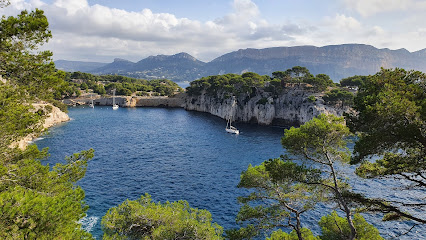
Mucem - Museum of Civilizations of Europe and the Mediterranean
Explore the Mucem in Marseille - a stunning museum celebrating Mediterranean cultures with unique architecture and breathtaking views.
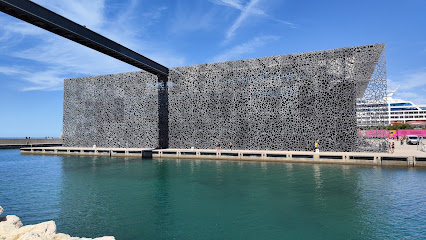
Palais Longchamp
Explore Palais Longchamp in Marseille: A stunning park and historical landmark featuring impressive fountains, beautiful gardens, and enriching museums.
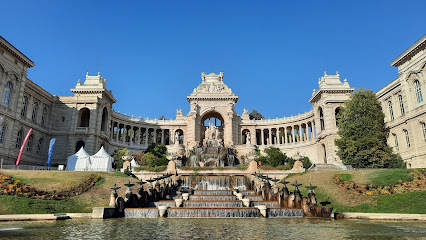
Marseille Cathedral
Discover the awe-inspiring Marseille Cathedral, a remarkable blend of Romanesque and Byzantine architecture, offering a glimpse into the city's rich spiritual heritage.

Parc Borély
Discover Parc Borély, a tranquil park in Marseille featuring stunning gardens, a historic castle, and serene lakes, perfect for relaxation and recreation.
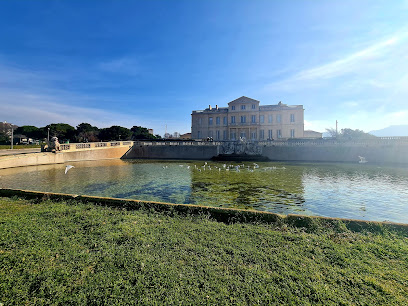
Cosquer Méditerranée
Explore the breathtaking underwater cave art and marine history at Cosquer Méditerranée, a unique cultural center in Marseille, France.
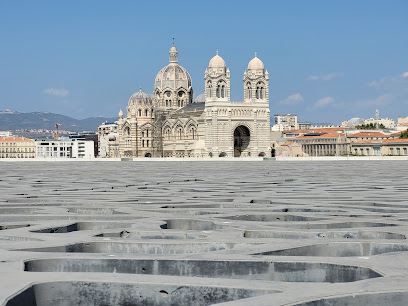
Old Port of Marseille
Discover the vibrant charm of the Old Port of Marseille, a historic harbor offering stunning views, delicious seafood, and a rich cultural experience.
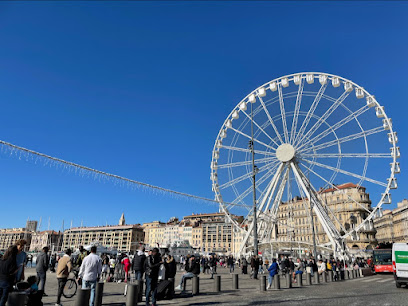
Château d'If
Discover the historical allure and stunning views of Château d'If, the famed fortress and prison nestled in the Mediterranean Sea near Marseille.
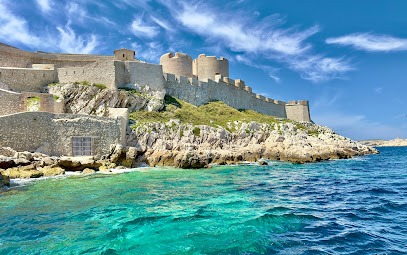
Porte d'Aix
Discover the historical charm of Porte d'Aix, a majestic archway that embodies the spirit and heritage of Marseille, France.
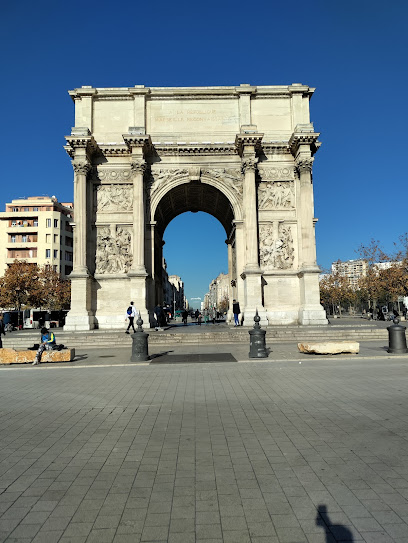
Palais du Pharo
Explore the rich history and stunning views at Palais du Pharo, a cultural landmark in Marseille that celebrates art and architecture.
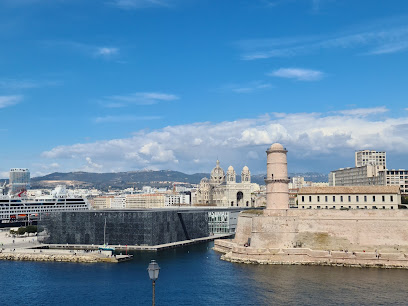
Abbaye Saint-Victor
Explore the historic Abbaye Saint-Victor in Marseille - a serene sanctuary showcasing stunning Romanesque architecture and rich cultural heritage.
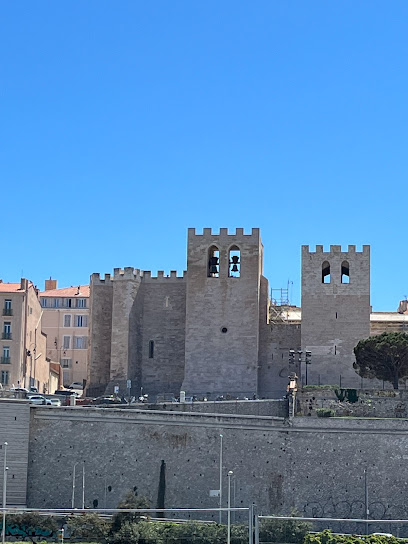
Zoological Gardens
Explore the enchanting Zoological Gardens of Marseille, where nature and wildlife come together in a serene urban oasis for all ages.
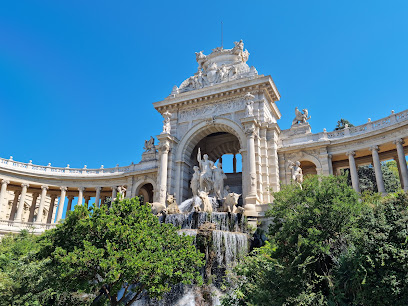
Parc Balnéaire du Prado
Experience the vibrant atmosphere and stunning coastal views at Parc Balnéaire du Prado, Marseille's premier urban park for relaxation and recreation.
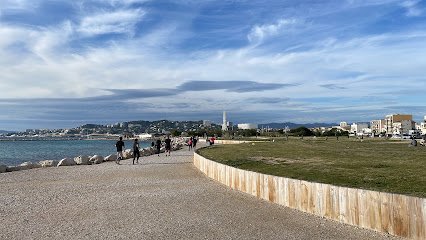
Château de la Buzine
Discover the enchanting Château de la Buzine in Marseille, where history meets culture in a stunning setting surrounded by beautiful gardens.
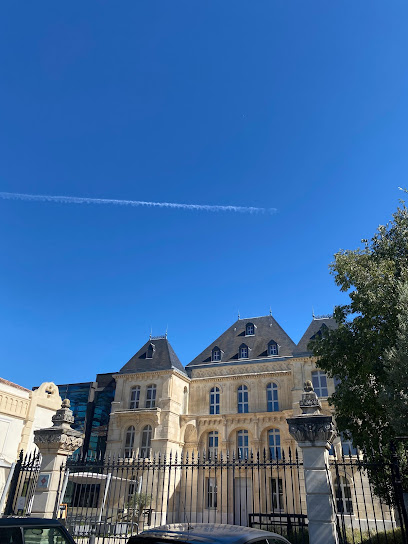
Unmissable attractions to see
Basilica of Notre-Dame-of-la-Garde at Marseille
Discover Marseille's iconic basilica, Notre-Dame de la Garde: a historic pilgrimage site offering breathtaking panoramic views and a glimpse into the city's soul.
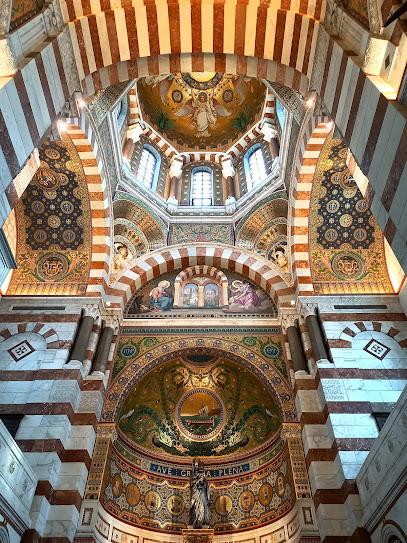
Orange Vélodrome
Experience the electric atmosphere of Marseille's iconic Orange Vélodrome, home to Olympique de Marseille and a world-class venue for sports and entertainment.
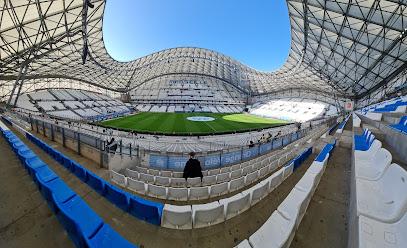
Parc national des Calanques
Discover the dramatic beauty of France's Parc National des Calanques: hike rugged trails, explore hidden coves, and swim in turquoise waters along the stunning Mediterranean coast.

Mucem - Museum of Civilizations of Europe and the Mediterranean
Explore the captivating MuCEM in Marseille, a museum dedicated to the diverse civilizations of Europe and the Mediterranean, blending history, culture, and breathtaking architecture for an unforgettable experience.
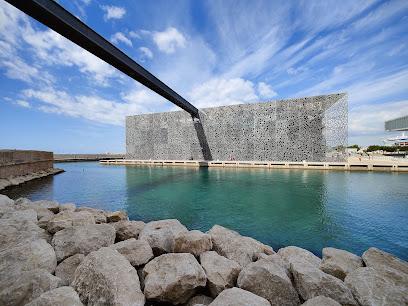
Palais Longchamp
Discover Marseille's architectural gem, Palais Longchamp, a monument celebrating water, art, and nature, housing museums and a park, offering a rich cultural experience.
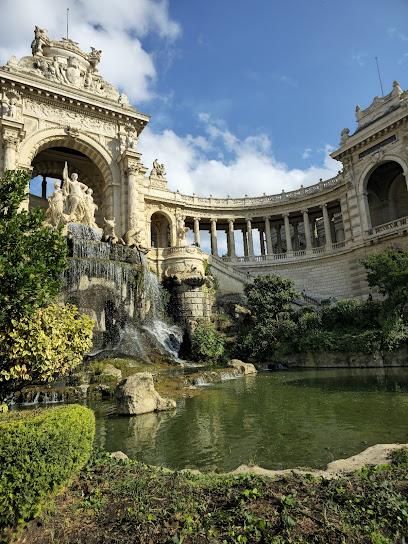
Cathédrale La Major
Discover Marseille's Cathédrale La Major: A stunning 19th-century cathedral blending Romanesque and Byzantine styles, a symbol of the city's rich history and cultural fusion.
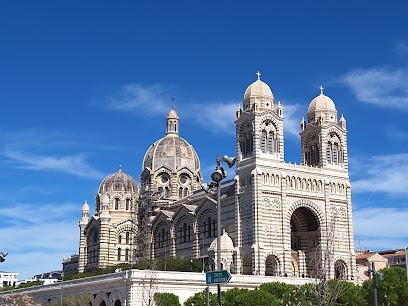
Port de Cassis
Discover the timeless charm of Port de Cassis, a picturesque harbor nestled on the French Riviera, offering stunning views, fresh seafood, and a gateway to the Calanques National Park and the vineyards of Provence.
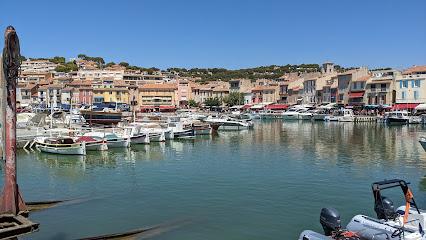
Parc Borély
Discover Marseille's enchanting Parc Borély: a blend of history, nature, and culture offering diverse gardens, a historic château, and family-friendly activities for an unforgettable Provençal experience.

Port de Toulon
Discover the vibrant Port de Toulon: a historic naval base, bustling ferry terminal, and captivating gateway to the French Riviera, offering a blend of maritime history and Mediterranean charm.
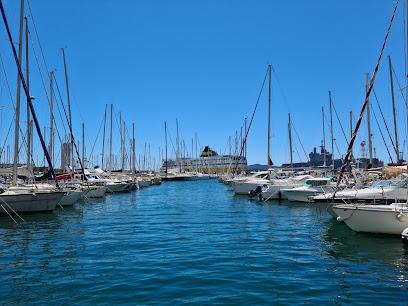
Fontaine de la Rotonde
Discover the Fontaine de la Rotonde in Aix-en-Provence: a majestic Baroque fountain, a symbol of the city's history and culture, surrounded by vibrant gardens and a lively atmosphere.
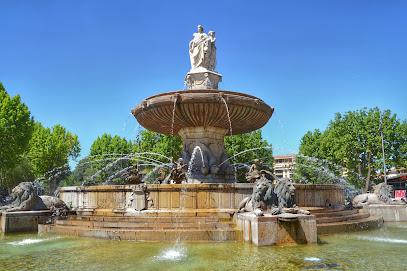
Calanque de Port-Miou
Discover the Calanque de Port-Miou, the gateway to the Calanques National Park, offering easy access, stunning views, and a glimpse into the region's rich history and natural beauty near Cassis.
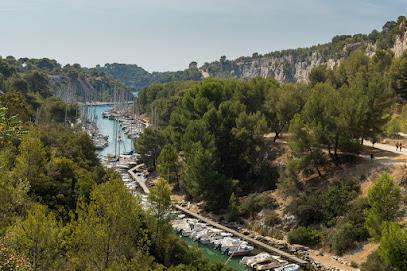
Plage Lumière
Discover Plage Lumière in La Ciotat: a family-friendly, accessible sandy beach with clear waters, a non-smoking environment, and a vibrant esplanade, perfect for a relaxing Mediterranean getaway.
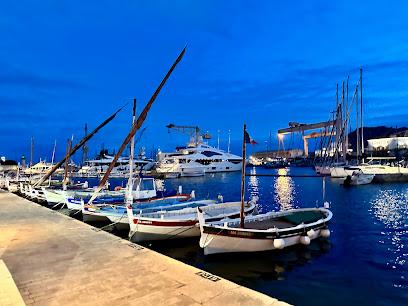
Hôtel de Caumont
Discover the elegance of 18th-century France at Hôtel de Caumont in Aix-en-Provence, an art center showcasing masterpieces within a meticulously restored aristocratic mansion and its serene French gardens.
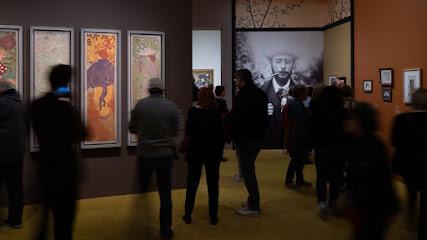
Old Port of Marseille
Discover the vibrant heart of Marseille at the Old Port, a historic harbor where ancient history meets modern culture, offering stunning views, delicious cuisine, and a lively atmosphere.
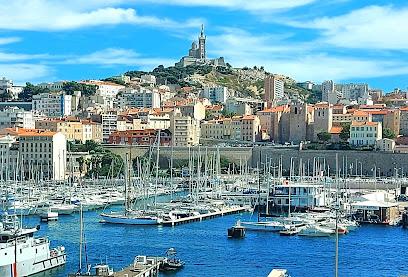
Vieux-Port de La Ciotat
Discover the timeless charm of Vieux-Port de La Ciotat: a historic marina blending Provençal culture with stunning Mediterranean scenery, offering a truly authentic coastal experience.
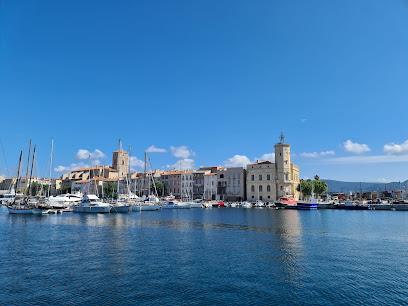
Essential places to dine
Peron Restaurant
Discover the exquisite flavors of Mediterranean cuisine at Peron Restaurant in Marseille, where fresh seafood meets French culinary artistry.
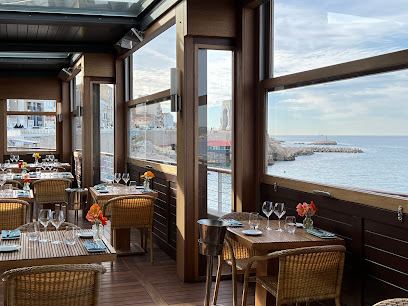
La table d'Augustine
Experience authentic Provençal cuisine at La Table d'Augustine in Marseille - where tradition meets innovation on every plate.
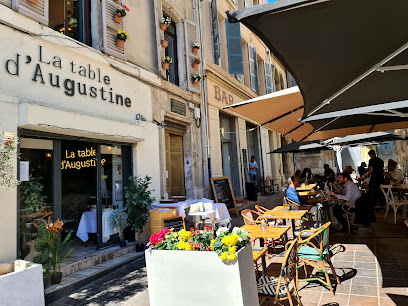
Nul Part Ailleurs
Experience exquisite French and Mediterranean cuisine at Nul Part Ailleurs in vibrant Marseille - where every meal tells a story.
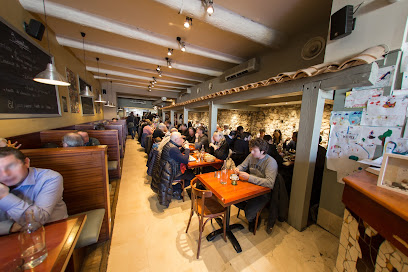
Restaurant Les Arcenaulx Marseille Vieux Port
Discover exquisite French and Mediterranean cuisine at Restaurant Les Arcenaulx in Marseille's enchanting Vieux Port.
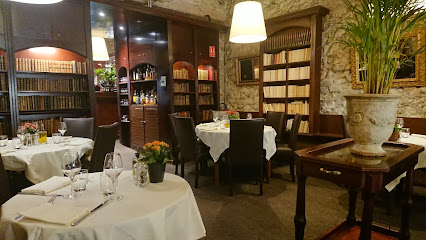
Le Hippie Chic Café
Discover the vibrant flavors of Marseille at Le Hippie Chic Café, where chic meets delicious in every dish.
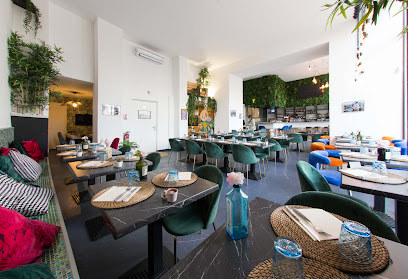
Au Bout du Quai
Experience exquisite seafood and authentic French cuisine at Au Bout du Quai in Marseille, where every meal tells a story of Mediterranean tradition.
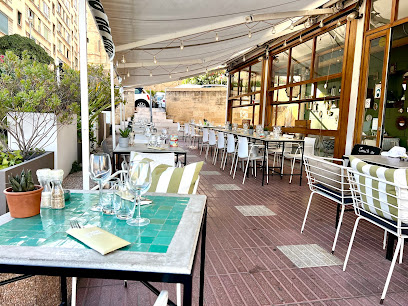
Le Roy René - Restaurant Marseille
Discover exquisite seafood at Le Roy René, where Mediterranean flavors meet fine dining elegance in beautiful Marseille.
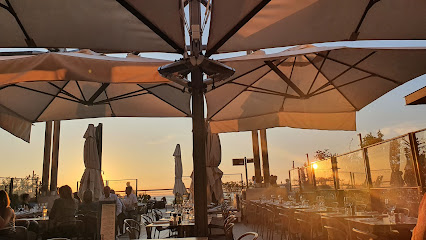
Restaurant l'Inattendu
Discover exquisite French and Mediterranean cuisine at Restaurant l'Inattendu in Marseille - a culinary gem offering delightful flavors in a warm atmosphere.
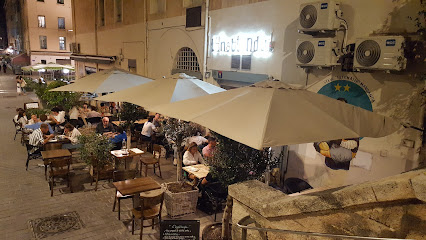
1860 Le Palais
Discover the flavors of France at 1860 Le Palais – a top-rated Mediterranean dining experience in Marseille's enchanting Vieux Port.
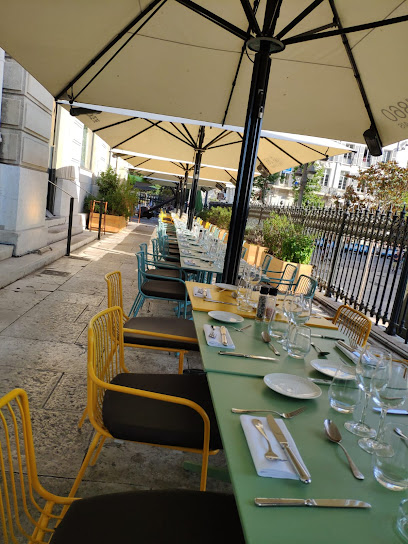
La Poule Noire
Experience exquisite French and Mediterranean cuisine at La Poule Noire, a top dining destination in Marseille.

Aux Antipodes
Experience an unforgettable blend of Brazilian, Japanese, and Thai cuisines at Aux Antipodes in Marseille.
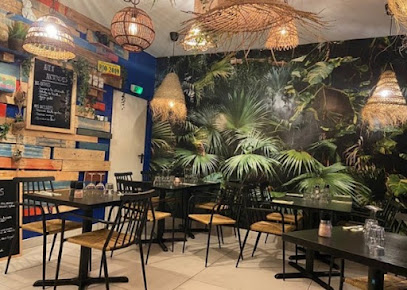
Maison Charlie
Experience authentic French cuisine and delightful pastries at Maison Charlie in the heart of Marseille - where every bite tells a story.
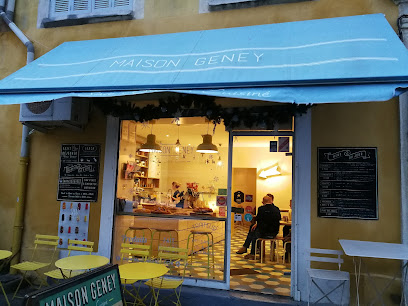
L'Épuisette
Discover L'Épuisette: An exquisite fine dining experience with breathtaking Mediterranean views in Marseille.

Au Coeur du Panier
Discover authentic French and Mediterranean flavors at Au Coeur du Panier in Marseille's historic district.
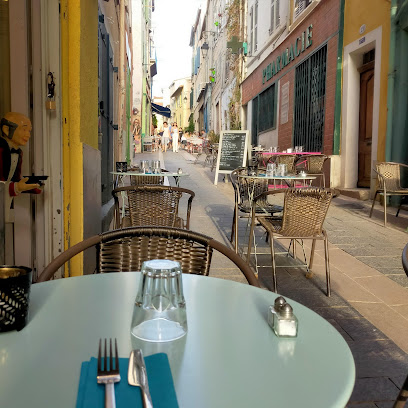
L'Arôme
Experience authentic Mediterranean cuisine at L'Arôme in Marseille—where every dish tells a story and every bite delights.
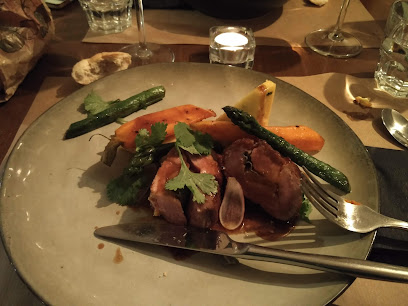
Markets, malls and hidden boutiques
Centre Commercial Centre Bourse
Experience the best shopping and dining at Centre Commercial Centre Bourse, a must-visit destination in Marseille for shoppers and food lovers alike.
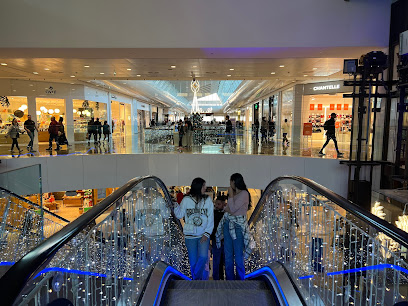
Le Panier Marseillais
Explore the vibrant Le Panier Marseillais, where history, culture, and shopping converge in the heart of Marseille.
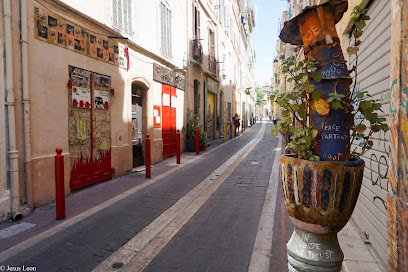
Galeries Lafayette
Explore Galeries Lafayette in Marseille for an unforgettable shopping experience with luxury brands, beauty products, and local flair in a stunning setting.
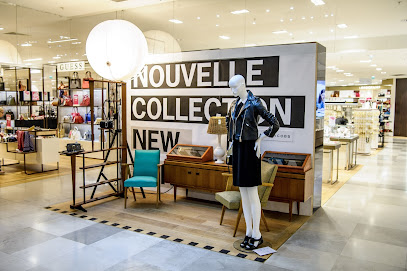
Printemps Les Terrasses du Port
Discover a premier shopping destination in Marseille with stunning harbor views and a diverse selection of boutiques and beauty supplies at Printemps Les Terrasses du Port.
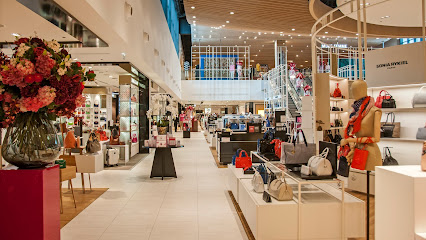
Citadium
Discover Citadium in Marseille for an unparalleled shopping experience featuring sportswear, women's fashion, and trendy footwear.
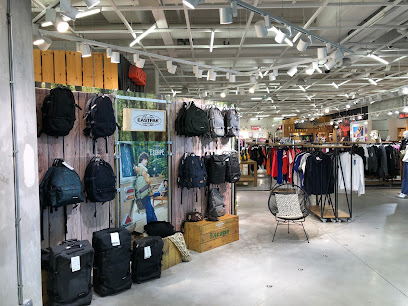
Nature and Discoveries
Explore Nature and Discoveries in Marseille for unique gifts, eco-friendly products, and local treasures that capture the Mediterranean spirit.
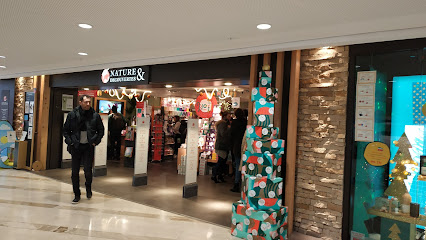
Louis Vuitton
Experience unparalleled luxury shopping at Louis Vuitton Marseille, home to exquisite leather goods, fashion accessories, and timeless elegance.
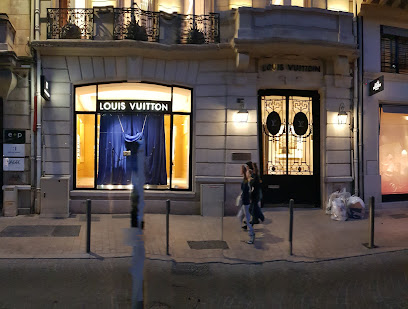
Bazaar Caesar Soap
Discover the essence of Marseille at Bazaar Caesar Soap, your one-stop destination for artisanal beauty products and local souvenirs.
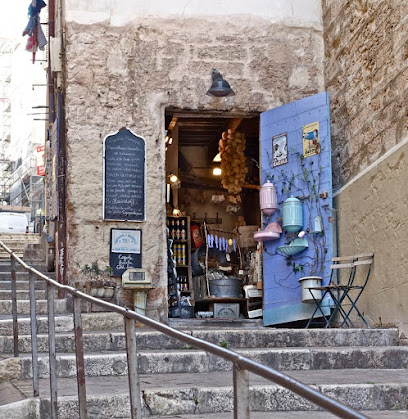
Pylones
Explore Pylones, a vibrant gift shop in Marseille offering unique treasures, quirky home decor, and delightful collectibles for all ages.
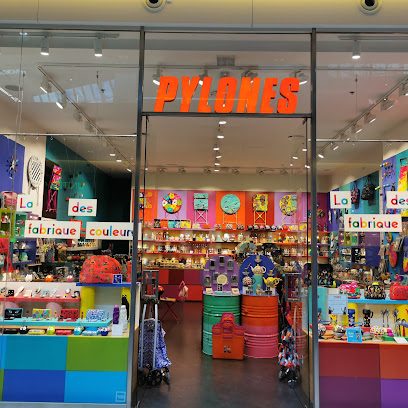
Trois Fenêtres
Discover unique treasures at Trois Fenêtres, a charming gift shop in Marseille offering vintage clothing, handmade jewelry, and local artworks.
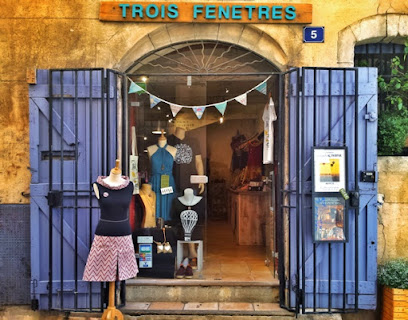
Mx Maison Yellow - Musée de l'Anis et Boutique
Discover the rich culture of anis at Mx Maison Yellow, a delightful mix of museum and gift shop in the heart of Marseille, France.
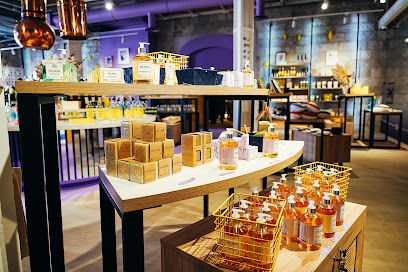
Space vintage
Explore Space Vintage in Marseille for a unique collection of vintage clothing and accessories that celebrate fashion history.
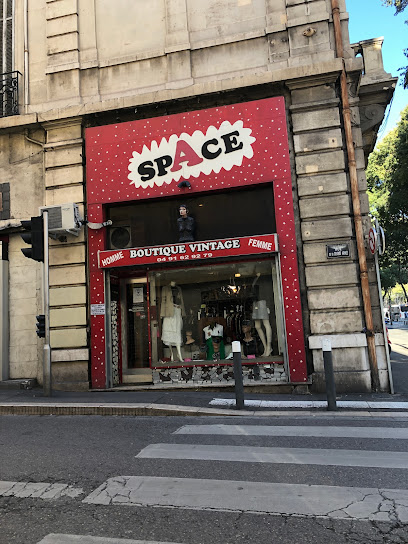
Belsunce Shop
Discover stylish men's clothing at Belsunce Shop in Marseille, where quality meets contemporary fashion in a vibrant shopping setting.
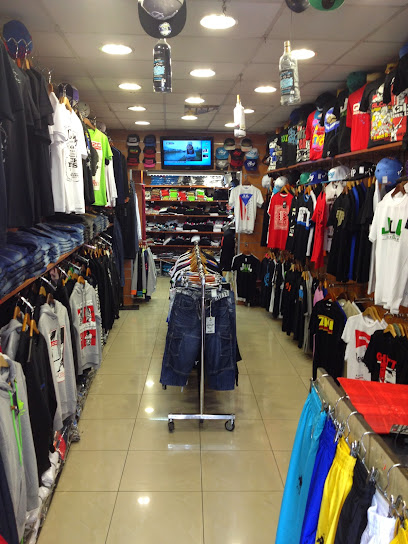
Marseille In The Box
Explore the best of Marseille at Marseille In The Box - your go-to gift shop for unique souvenirs, books, and local treasures.
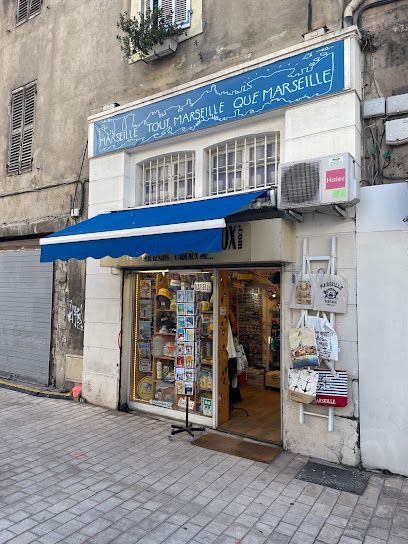
G-Star RAW Store
Explore stylish denim and accessories at G-Star RAW Store in vibrant Marseille; a must-visit for fashion enthusiasts seeking contemporary styles.
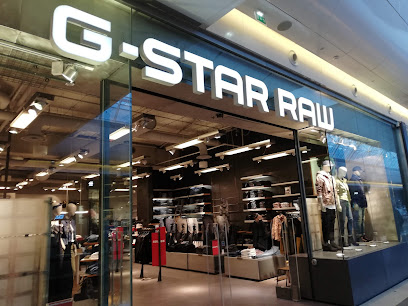
Essential bars & hidden hideouts
The Shamrock
Discover the vibrant charm of The Shamrock, an Irish pub in Marseille, offering a delightful blend of drinks, cuisine, and live entertainment.
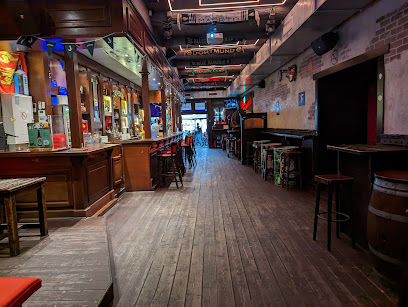
The Red Lion
Experience the lively vibe of The Red Lion, Marseille's favorite pub, offering a wide selection of drinks and live music in a welcoming atmosphere.
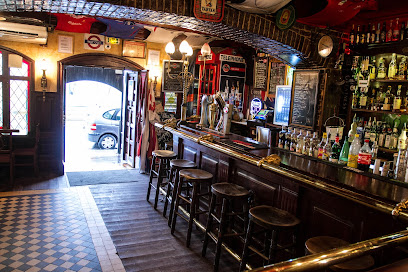
La Caravelle
Experience the vibrant charm of La Caravelle, Marseille's premier bar offering tapas, local brews, and live music along the picturesque port.
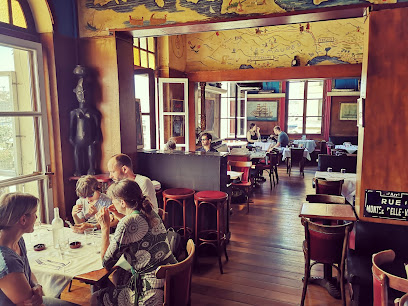
Bar de la Marine
Experience the vibrant ambiance and delicious offerings at Bar de la Marine, a must-visit bar and restaurant in the heart of Marseille.
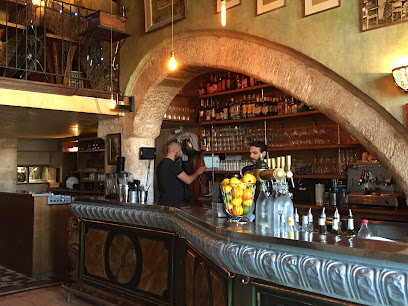
Les Berthom
Discover the vibrant atmosphere of Les Berthom, a bar in Marseille renowned for its unique cocktails and craft beer selection, perfect for tourists seeking local flavor.
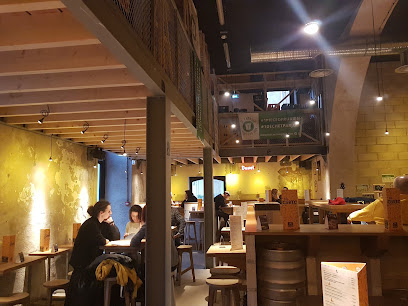
Carry Nation
Discover Carry Nation, a hidden cocktail bar in Marseille offering exquisite drinks in a unique and intimate atmosphere.
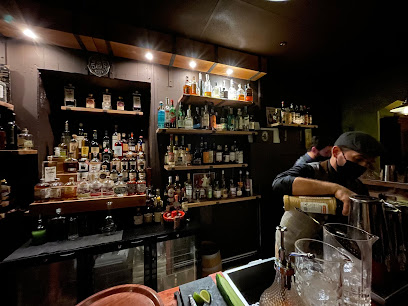
White Rabbit
Discover the lively White Rabbit Irish pub in Marseille, where local culture meets an extensive drink selection, perfect for tourists and locals alike.
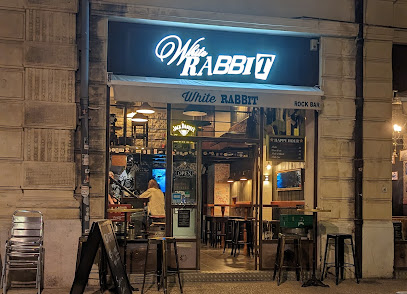
Polikarpov
Discover the charm of Polikarpov, a delightful bar and café in Marseille known for its vibrant atmosphere and exquisite drink selection.
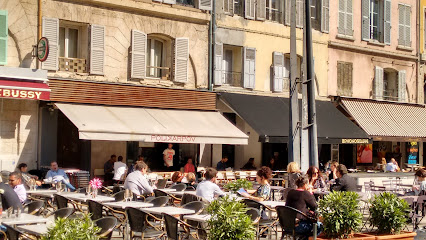
Loch Ness
Explore Loch Ness: A captivating blend of legend, natural beauty, and adventure in the heart of the Scottish Highlands.
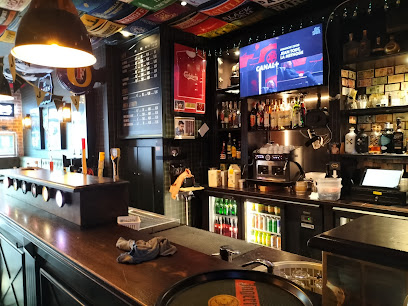
Bar Gaspard
Experience the vibrant nightlife of Marseille at Bar Gaspard, where exquisite cocktails and delectable tapas await in a lively ambiance.
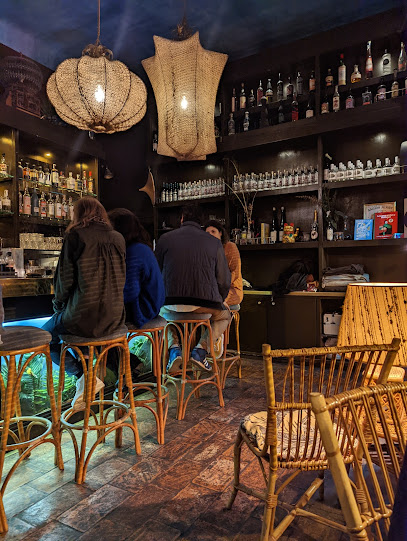
The Champ De Mars
Experience the heart of Marseille at The Champ De Mars, where vibrant ambiance and delightful drinks come together in a classic bar setting.
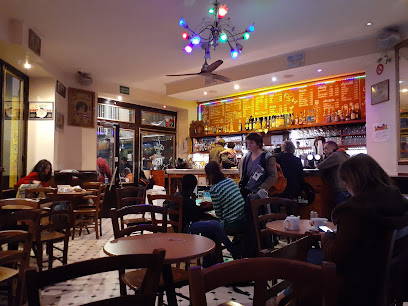
L'unic Bar
Experience the vibrant nightlife of Marseille at L'unic Bar, where eclectic drinks meet a lively atmosphere.
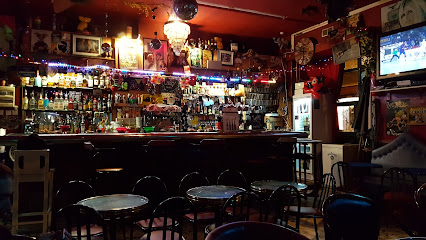
The British Pub Marseille
The British Pub Marseille: A taste of British culture in the vibrant heart of Marseille, offering great drinks, hearty meals, and lively entertainment.
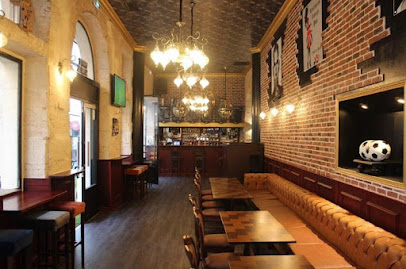
La dame du mont
Experience the vibrant nightlife of Marseille at La Dame du Mont, a bar that blends local culture with a welcoming atmosphere and unique drink offerings.
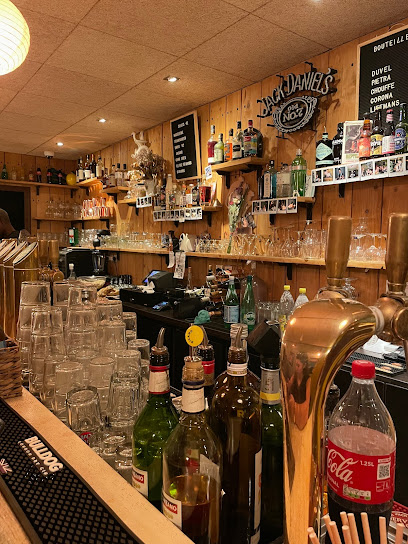
Local Phrases
-
- HelloBonjour
[bohn-zhoor] - GoodbyeAu revoir
[oh ruh-vwahr] - YesOui
[wee] - NoNon
[nohn] - Please/You're welcomeS'il vous plaît / De rien
[seel voo pleh / duh ryen] - Thank youMerci
[mehr-see] - Excuse me/SorryExcusez-moi/Désolé
[ehk-skew-zay mwah / day-zoh-lay] - How are you?Comment ça va?
[koh-mohn sah vah] - Fine. And you?Bien. Et vous?
[byen. ay voo] - Do you speak English?Parlez-vous anglais?
[par-lay voo ahn-glay] - I don't understandJe ne comprends pas
[zhuh nuh kohm-prahnd pah]
- HelloBonjour
-
- I'd like to see the menu, pleaseJe voudrais voir la carte, s'il vous plaît
[zhuh voo-dray vwahr lah kahrt, seel voo pleh] - I don't eat meatJe ne mange pas de viande
[zhuh nuh mahnj pah duh vyand] - Cheers!Santé!
[sahn-tay] - I would like to pay, pleaseJe voudrais payer, s'il vous plaît
[zhuh voo-dray pay-ay, seel voo pleh]
- I'd like to see the menu, pleaseJe voudrais voir la carte, s'il vous plaît
-
- Help!Au secours!
[oh suh-koor] - Go away!Allez-vous-en!
[al-lay voo zah] - Call the Police!Appelez la police!
[ah-pay-lay lah poh-lees] - Call a doctor!Appelez un médecin!
[ah-pay-lay uh mayd-sahn] - I'm lostJe suis perdu
[zhuh swee pair-doo] - I'm illJe suis malade
[zhuh swee mah-lahd]
- Help!Au secours!
-
- I'd like to buy...Je voudrais acheter...
[zhuh voo-dray ah-shuh-tay] - I'm just lookingJe regarde juste
[zhuh ruh-gard zhewst] - How much is it?Combien ça coûte?
[kohm-byen sah koot] - That's too expensiveC'est trop cher
[say troh shay] - Can you lower the price?Pouvez-vous baisser le prix?
[poo-vay voo bay-say luh pree]
- I'd like to buy...Je voudrais acheter...
-
- What time is it?Quelle heure est-il?
[kell uhr eh-teel] - It's one o'clockIl est une heure
[eel eh tewnuhr] - Half past (10)Dix heures et demie
[dees uhr ay duh-mee] - MorningMatin
[mah-tan] - AfternoonAprès-midi
[ah-pray mee-dee] - EveningSoir
[swahr] - YesterdayHier
[yehr] - TodayAujourd'hui
[oh-zhoor-dwee] - TomorrowDemain
[duh-mahn] - 1Un
[uh] - 2Deux
[duh] - 3Trois
[twah] - 4Quatre
[kah-truh] - 5Cinq
[sank] - 6Six
[sees] - 7Sept
[sept] - 8Huit
[weet] - 9Neuf
[nuhf] - 10Dix
[dees]
- What time is it?Quelle heure est-il?
-
- Where's a/the...?Où est...?
[oo eh] - What's the address?Quelle est l'adresse?
[kell eh la-dress] - Can you show me (on the map)?Pouvez-vous me montrer (sur la carte)?
[poo-vay voo muh mohn-tray (surr lah kahrt)] - When's the next (bus)?Quand est le prochain (bus)?
[kahn eh luh proh-shahn (buhs)] - A ticket (to ....)Un billet (pour ...)
[uhn bee-yay (poor ...)]
- Where's a/the...?Où est...?
History of Marseille
-
Marseille, originally known as Massalia, was founded around 600 BCE by Greek settlers from Phocaea. It quickly became one of the most important trading posts in the Mediterranean, connecting the Greek world with the Celtic tribes of inland Europe.
-
In 49 BCE, Marseille was captured by the Romans during the civil war between Julius Caesar and Pompey. Under Roman rule, the city flourished, becoming an important center for maritime trade and a hub for the spread of Roman culture and infrastructure.
-
During the medieval period, Marseille became a key port for the Crusades, with many knights and pilgrims departing from its harbor to the Holy Land. The city also developed a strong maritime and commercial tradition, which laid the foundation for its future growth.
-
One of the most significant events in Marseille's history was the Great Plague of 1720. The outbreak, which arrived via a ship from the Levant, decimated the population, killing around 100,000 people. The city recovered slowly, but this tragic event left a lasting mark on its history.
-
Marseille played a notable role during the French Revolution. The city's militia, the 'Marseillais,' marched to Paris in 1792, singing what would become La Marseillaise, the French national anthem. During the Napoleonic era, Marseille continued to grow as a major industrial and commercial port.
-
The 19th century saw Marseille transforming into an industrial powerhouse. The construction of the Suez Canal in 1869 further boosted its importance as a global port. Industries such as soap manufacturing, shipbuilding, and chemical production flourished, attracting a diverse population.
-
During World War II, Marseille was occupied by German forces and suffered significant damage. The Old Port area was heavily bombed and subsequently rebuilt. The city was liberated in August 1944 by Allied forces, marking the end of a dark chapter in its history.
-
In recent decades, Marseille has undergone significant urban renewal and cultural renaissance. The opening of the MUCEM (Museum of European and Mediterranean Civilisations) in 2013 and the city's designation as the European Capital of Culture in the same year have revitalized its cultural scene and cemented its status as a vibrant, multicultural metropolis.
Marseille Essentials
-
Marseille is well-connected by air, rail, and road. Marseille Provence Airport (MRS) is the main international airport, located about 27 kilometers northwest of the city center. It offers numerous flights to and from major cities in Europe and beyond. The city's main railway station, Gare de Marseille-Saint-Charles, offers high-speed TGV services to cities like Paris, Lyon, and Nice. For those traveling by car, Marseille is accessible via the A7 from the north and the A50 from the east.
-
Getting around Marseille is convenient with its efficient public transportation network, including buses, trams, and the metro, all operated by RTM (Régie des Transports Métropolitains). The metro has two lines (M1 and M2), and the tram network has three lines (T1, T2, T3). Tickets are interchangeable across all forms of public transport. Taxis and ride-hailing services like Uber are also available. For a more scenic route, consider taking the ferry boat across the Old Port.
-
The official currency in France is the Euro (EUR). Credit and debit cards are widely accepted in most restaurants, shops, and hotels. ATMs are plentiful throughout the city, and contactless payment methods are increasingly popular. It's advisable to carry some cash for smaller establishments, markets, or when traveling to more remote areas.
-
Marseille is generally a safe city, but like any major urban area, it has its share of crime. Exercise caution in neighborhoods known for higher crime rates, such as the northern districts (3rd, 14th, 15th, and 16th arrondissements). Pickpocketing can be an issue in crowded areas like the Old Port and public transportation. Avoid walking alone late at night in poorly lit areas and always stay aware of your surroundings.
-
In case of emergency, dial 112 for all types of emergencies, including police, fire, and medical services. Local police stations and hospitals like Hôpital de la Timone and Hôpital Nord are available for assistance. It's advisable to have travel insurance that covers medical emergencies. Pharmacies are abundant and can provide over-the-counter medications for minor health issues.
-
Fashion: Do dress stylishly, as Marseillais take pride in their appearance. Avoid overly casual attire when dining out or visiting upscale venues. Religion: Do respect religious sites by dressing modestly and keeping noise to a minimum. Public Transport: Do validate your ticket before boarding and offer your seat to elderly passengers. Don't eat or drink on public transport. Greetings: Do greet people with a friendly 'Bonjour' and a handshake. Eating & Drinking: Do try local dishes like bouillabaisse and Pastis. Don't rush through meals; dining is a leisurely affair in Marseille.
-
To experience Marseille like a local, visit the Noailles market for fresh produce and local specialties. Explore the Panier district, the city's oldest neighborhood, for a taste of authentic Marseille life. Engage with locals in small cafés and bistros, and consider learning a few basic French phrases to enhance your interactions. For a unique experience, take a boat trip to the Calanques National Park for stunning coastal scenery and hiking opportunities.
Trending Landmark in Marseille
-
Basilica of Notre-Dame of la Garde
-
Parc national des Calanques
-
Mucem - Museum of Civilizations of Europe and the Mediterranean
-
Palais Longchamp
-
Marseille Cathedral
-
Parc Borély
-
Cosquer Méditerranée
-
Old Port of Marseille
-
Château d'If
-
Porte d'Aix
-
Palais du Pharo
-
Abbaye Saint-Victor
-
Zoological Gardens
-
Parc Balnéaire du Prado
-
Château de la Buzine
Nearby Cities to Marseille
-
Things To Do in Aix-en-Provence
-
Things To Do in Avignon
-
Things To Do in Nîmes
-
Things To Do in Saint-Tropez
-
Things To Do in Montpellier
-
Things To Do in Cannes
-
Things To Do in Nice
-
Things To Do in Fontvieille
-
Things To Do in Moneghetti
-
Things To Do in Les Moneghetti
-
Things To Do in La Condamine
-
Things To Do in Monaco-Ville
-
Things To Do in Monte Carlo
-
Things To Do in Larvotto
-
Things To Do in La Rousse


















